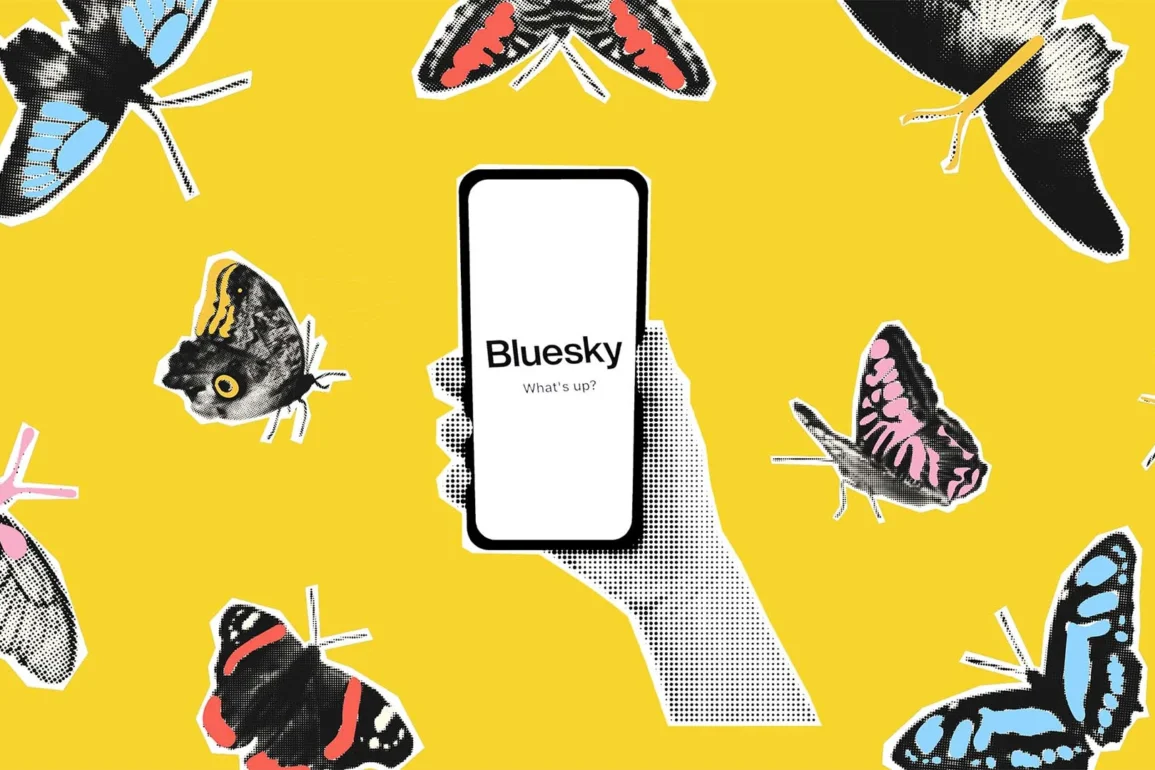
As Elon Musk continues to re-shape X in his increasingly conspiratorial and pro-MAGA image, users are ditching their accounts and finding solace in the seemingly more pleasant feeds of Bluesky. Last week, a million new users signed up for the social platform, bringing its total usership to 15 million as of Tuesday.
Some of the exodus is fueled by Musk’s gloating in the wake of Donald Trump’s November 5 victory. But the deactivations have been coming for a while: The former Twitter has rapidly turned into a vortex of misinformation since the world’s richest man bought the company in 2022. Various analyses show that X is a hotbed of misinfo—a study by the Center For Countering Digital Hate found that Musk alone made 50 false or misleading posts about the election between January and July.
For X exiles, Bluesky can seem like a refuge from the fever swamps. But there is still some anxiety surrounding the new app: Some users have been wondering if brands will eventually start flooding their feeds. Brand accounts were everywhere on the former Twitter. You may recall fast food companies yelling at each other, household cleaning products weighing in on viral phenomena, or junk food brands amping up the cringe with their best April Fool’s jokes.
Bad news for business owners and marketing managers—Bluesky won’t be very accommodating to brands hoping to connect with audiences or make a viral splash. Marketing campaigns and gimmicks won’t have the same visibility on the platform, says Mubashar Iqbal, an independent software engineer. Unlike corporate social media companies, Bluesky has robust filtering capabilities—users can design all of their own feeds, and create their own to share with others. In other words, brands don’t have to be part of the user experience.
“[X] controls its algorithms, in terms of the things that you see. With Bluesky, anybody can set up their own feeds, and can control what those algorithms are,” Iqbal says.
Wait and See
If brands can be swatted away like flies, then what business do they have on the hot new app? “Part of me feels like perhaps the people on the platform are likely hostile to brands coming in,” says Marcus Collins, a marketing professor at the University of Michigan. He likens the average Bluesky user’s brand antipathy to those of early Reddit users. “Maybe 10 years ago, brands were very hesitant about being on Reddit, because the idea was that brands get eaten alive on Reddit,” he says.
Of course, that changed. Reddit is now a public company that relies on ad dollars. The shift in business strategy was part of what inspired a Reddit user revolt last year.
The question for brands mulling opening up accounts on Bluesky: Can you meaningfully participate in an ecosystem that seems totally indifferent, if not vehemently opposed, to companies flooding the airwaves? Should you even try?
“Brands won’t be looking at Bluesky—not anytime soon,” Shama Hyder, founder and CEO of the marketing agency Zen Media, tells Inc.
For companies looking to test out new platforms, Meta-owned Threads seems to play nicer with a corporate marketing vibe. “There are so many other platforms where brands could invest. I wouldn’t recommend any of our clients to invest there at the moment. The ROI just isn’t there,” Hyder adds.
At the moment, Bluesky is far more focused on the development of new tech products than welcoming an influx of corporate accounts. Bluesky is decentralized, based on open sourced code built internally by the company. This means that anybody with the programming know-how can use the same architecture to build new interconnected sites, which are navigable under a user’s Bluesky handle. So picture individually-operated networking sites and groups or other communications platforms that don’t even exist yet.
Though he doesn’t work for Bluesky, this is exactly what Iqbal did. He’s been tinkering with one of the platform’s marquee products, “starter packs,” which are basically lists of interesting accounts for newbies to follow. With the site’s exploding usership, the need for starter packs has been overwhelming, so Iqbal compiled more than 9,000 of them in what he named the Bluesky Directory.
The Bluesky Difference
Bluesky has a much different philosophical approach than traditional social media giants. Whereas Twitter, Facebook and Instagram are products of the hypergrowth era and have turned much of the internet into a data dragnet built to feed ad networks, Bluesky is more focused on the user-experience.
The company was founded in 2019 by Twitter-founder Jack Dorsey, but he left his seat on Bluesky’s board in May. Unlike Dorsey’s first company, Bluesky maintains it will never rely on advertisers. That is a massive divergence from most social media companies, which are notorious for their data-collection practices. Bluesky CEO Jay Graber described the attitude to Wired earlier this year, saying “we can’t enshittify the network with ads.”
Graber didn’t respond to an Inc. request for comment about the company’s business strategy and relationship to brands, but did marvel at the site’s explosive growth in an emailed statement.
“Bluesky’s growth marks a new era of social media—one where users are put first, developers have the freedom to build, and creators have independence from platforms,” she told Inc.
Bluesky’s business strategy is untested. It will charge fees for users who create custom domains on the site, and will eventually provide subscriptions for “higher quality video uploads or profile customizations like colors and avatar frames,” it said in a statement last month. One of Bluesky’s investors, Blockchain Capital, didn’t reply to an Inc. request for comment about the company’s ambitions, or whether or not it’s concerned with growth. Last month, it raised $15 million in Series A funding, following its $8 million Seed round last July.
Collins, the marketing professor, is still skeptical that a social network can thrive in the modern age without some level of brand activity, specifically through ad-partnerships. “The only media I’ve seen be successful without advertiser ad dollars is pornography,” he says.
In the meantime, Bluesky users are certainly feasting on the wealth of user-generated content and news that had vanished from the former Twitter. Those users have coined a phrase, without the help of any marketing agency, to characterize Bluesky’s ascent: “Bluesky has The Juice.”








